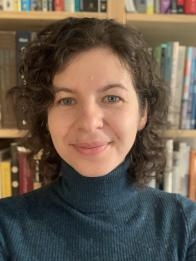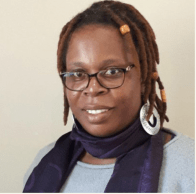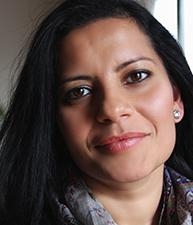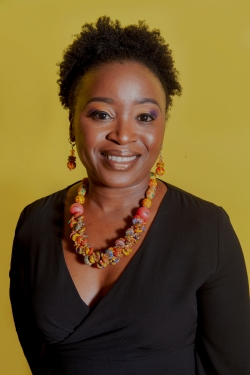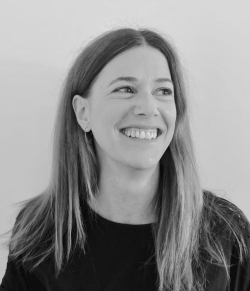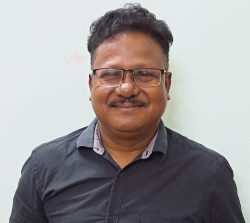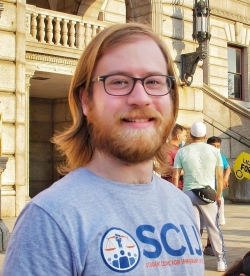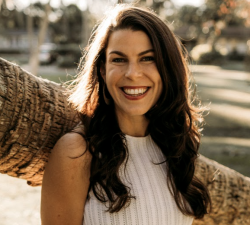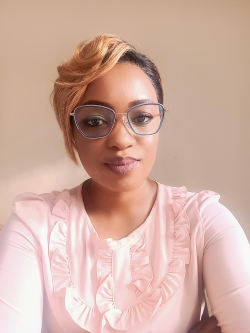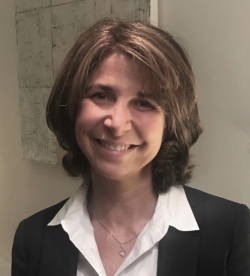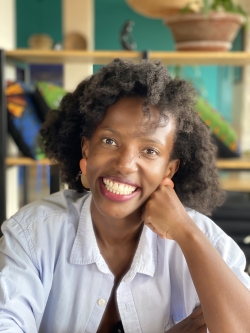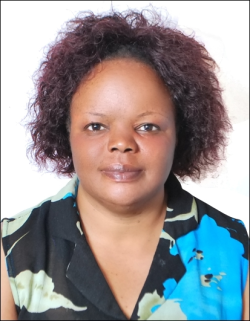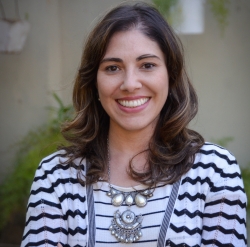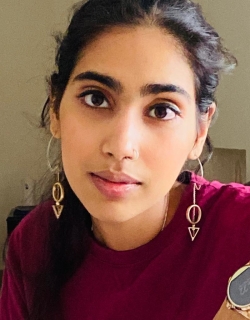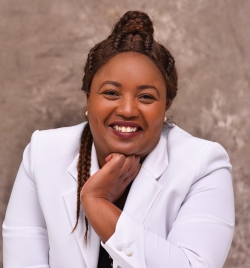Learning Lab Participants
Second Cohort (2022-2023)
The Bernstein Institute has offered two adaptations of the Lab since 2020. Meet our first cohort.
Emese Ilyes (co-organizer) is a critical social psychologist whose scholarship excavates the history of constructs that group people into categories. Her research, writing, and organizing has sought to understand the systems that define capacity and impose labels like intellectual disability on select bodies and minds. As an educator and researcher—working with participatory methodologies that make room for poetic and non-textual ways of knowing— she continues to work in collaboration with communities who most deeply understand structural violence and who can most clearly articulate visions of a just world. With this commitment to participatory methodologies led by those most impacted, Emese continues to work in solidarity with communities to interrogate systems of power and to name radical possibilities.
Melania Chiponda (co-organizer) is an African Ecofeminist, popular educator and participatory action researcher. She believes that education should be a collective, transformative and empowering process that should raise critical consciousness and enable participants in the learning process to understand the world in a way that is liberating. Based on her values and beliefs, Melania has landed herself into enriching spaces that challenge structural injustice, systemic oppression, and extractivism as a development model to rethink, reimagine, and nurture hope. Melania works with the working class, peasant and indigenous women and groups across Africa and worldwide to defend lands and territories, build movements, honour, and produce alternative knowledge that speaks to people's realities.
Sukti Dhital (co-organizer) is the Executive Director of the Bernstein Institute for Human Rights at NYU School of Law. She also serves as a Supervising Attorney with the Global Justice Clinic at NYU Law, where she oversees legal empowerment projects spanning jailhouse lawyers and immigrant rights. Previously, Sukti was the Executive Director and Co-Founder of Nazdeek, a legal empowerment organization committed to bringing access to justice closer to marginalized communities in India. She worked closely with affected community members and social movements to advance human rights through a community-driven approach, with a focus on indigenous and Dalit women.
Pamhidzai Bamu was born and raised in Zimbabwe. She is a lawyer and currently is the Africa Coordinator of the Law Program at WIEGO, a global network dedicated to improving the working conditions of the working poor—especially women—in the informal economy. Pamhidzai is deeply committed to strengthening workers’ capacity to know, use and shape the law. Previously, she worked as a researcher in the Institute of Development and Labour Law at the University of Cape Town and the Social Law Project at the University of Western Cape. She has also consulted for the ILO Pretoria, Harare and Geneva offices on various issues, including labour migration, domestic work, non-standard employment and the employment contract. She has also served as a consultant to the Southern African Development Community Secretariat on human trafficking in the region. Pamhidzai is currently the Deputy Chair of the African Labour Law Society.
Immaculata Casimero is an indigenous woman, who belongs to the Wapichan nation in Guyana. Working with her people, she is aware of the issues and struggles faced from mining activities that are happening with out the free, prior and informed consent of the Wapichan people. She is the co-founder of the Wapichan Wiizi Women's Movement, the women arm of the South Rupununi District Council, a local representative organisation of 21 villages. The Wapichan Wiizi Women's Movement aims to improving women's livelihood through collective action, entrepreneurship ,and empowerment.
Shauna Curphey is a human rights lawyer, researcher and the co-director of Just Ground, where she works to advance the visions of communities working to address corporate activity that threatens or violates their human rights. Previously, she served as the associate general counsel for the Coalition of Immokalee Workers, as a human rights analyst for the Institute for Multi-Stakeholder Initiative Integrity, and litigated cases in the U.S. as a civil rights attorney in Oregon and Florida. Shauna also spent a year teaching and writing for EarthRights International in Thailand, served as a federal judicial clerk in the District of Oregon, defended the Fourth Amendment as research attorney for the Federal Public Defender for Oregon and pushed for police reform as a staff attorney for the NW Constitutional Rights Center.
Krithika Dinesh works on legal empowerment projects at WIEGO, a global network dedicated to improving the working conditions of working poor—especially women—in the informal economy. Previously, Krithika has worked with the Centre for Policy Research and Namati's Environment Justice Program in India. There she worked with communities affected by impacts of pollution and displacement from mining, industrial, and infrastructural projects in parts of India to seek remedies from administrative authorities.
Stephen Ekka is a proud member of the Oraon tribe, an Adivasi (indigenous) tribe in Assam, India. The Adivasi community in Assam is composed of many different tribes and groups who were brought to work in the tea plantations when tea began to be cultivated in the 1830s in India. Presently, Stephen works at PAJHRA, a non-profit organization that works for the development of the Adivasi community in Assam, particularly those working in the tea plantations. Prior to PAJHRA, Stephen worked in community development at the Indo-Global Social Service Society in India. Stephen has had the opportunity to talk and advocate on the issues of his community on different national and international platforms. He lives with his 2 sons and wife in Tezpur, Assam and loves traveling, meeting people, and gardening.
Jonathan Goldman is the Executive Director of the Student Clinic for Immigrant Justice (SCIJ), a youth-led organization fighting for the safety of immigrants in the U.S. by training and mobilizing college students to organize for local change and provide pro bono representation to asylum seekers. In college, Jonathan co-founded The Right to Immigration Institute (TRII), where he saw first-hand how painful and confusing immigration can be. From TRII along with his experiences on campaigns, leading public art projects, and co-founding Waltham Mutual Aid, he saw how transforming our immigration system would require a much bigger approach. This is what led him to found SCIJ.
Guillermina Greco is a lawyer in Argentina working with la Asociación Civil por la Igualdad y la Justicia (ACIJ) where she focuses on access to justice and right to the city through a legal empowerment approach. ACIJ accompanies reurbanization processes in neighborhoods across Buenos Aires, a joint effort between grassroots organizations, neighborhoods, governmental departments ,and civil society. ACIJ also creates law workshops and courses directed at referents in the communities. Guillermina is also an educator at three Universities in Argentina.
Jenna Harvey coordinates WIEGO's Focal Cities initiative, in support of membership-based organizations of informal workers in Latin America, West Africa and India. Her specific interests are participatory planning, participatory action research (PAR), critical education, and inclusive models of urban economic development. Prior to joining WIEGO, Jenna worked in Nicaragua on cooperative development, and conducted Fulbright research on Nicaraguan migration and informal work in San Jose, Costa Rica. She subsequently supported a community development bank in Northeast Brazil in the design and implementation of a PAR project focused on youth empowerment and community development. She holds a master’s degree in City Planning from MIT.
Ruth Kaima is a Human Rights Lawyer from Malawi working for Centre for Human Rights, Education, Advice and Assistance (CHREAA), an organization whose missions is to promote and protect human rights by assisting the vulnerable and marginalized people in Malawi. Before obtaining her law degree in 2019, Ruth spent eight years as a paralegal. She has vast experience promoting the rights of people in prison and those seeking redress through the courts, and in ensuring that those who abuse their power and authority face the arm of the law. Ruth has extensive experience in strategic litigation and human rights based research, some of which has been published in notable journals. She believes that legal empowerment for all is key to ensuring a world where everyone enjoys their rights equally.
Teresa Marchiori is an access to justice lawyer at WIEGO, a global network dedicated to improving the working conditions of the working poor—especially women—in the informal economy. She focuses on access to justice and legal empowerment for workers in informal employment working in the public space and domestic workers. Prior to WIEGO, she worked as an access to justice specialist for the World Bank. She also worked with the World Bank’s Justice for the Poor Programme, on issues of legal empowerment, legal reform, and equitable access to justice for the poor and marginalized. Teresa has also worked with UN Women, the Swiss government, the OECD and the Council of Europe on human rights and access to justice issues.
Phoebe Murungi is a Ugandan lawyer dedicated to finding ways to demystify complex legal systems to enable ordinary citizens to resolve their justice needs. She currently serves as a child protection officer with the United Nations Mission in South Sudan to enhance the fulfillment of the mission’s mandate of protection of children in armed conflict. Phoebe has worked in an international NGO assisting people to use the law to claim rights and entitlements under international law that were not yet recognized under municipal law; a leading commercial law firm in Kampala helping clients resolve their civil and commercial justice issues; and most recently at Barefoot Law an award winning legal services organization using technology and other innovations to make legal information readily accessible to underserved populations.
Margaret Namaganda is the Executive Director of AdvocAid, an organization that works with girls and women caught up in Sierra Leone's often unjust legal system. She is a Psychologist, Social Worker, and Community Development professional with more than 15 years of work in a span of human rights issues. She strongly believes and supports learning as a continuous process, with a particular love of evidence based participatory approaches. Margaret is committed to protection and promotion of the rights and emotional wellbeing of vulnerable persons, particularly women and girls and promotes transparency, inclusivity, good governance, and justice for all.
Ana Carolina Ogando is a Research Associate in the Urban Policies Programme at WIEGO, a global network dedicated to improving the working conditions of the working poor—especially women—in the informal economy. Ana's research interests include gender, qualitative and participatory methodologies, the confluence of action research and feminist praxis, and participatory governance. Since joining WIEGO in 2012, she has worked closely with waste pickers in Belo Horizonte, Brazil on capacity building for membership-based organizations centered on raising gender awareness and occupational health and safety. She also led the qualitative research component of WIEGO’s COVID-19 Crisis and the Informal Economy Study. She is based in Belo Horizonte, Brazil and holds a PhD in Political Science from the Federal University of Minas Gerais.
Beenish Riaz is a PhD student at Columbia University where she is researching and writing on international law, human rights and international relations issues. She graduated from NYU Law with her J.D. in 2020 and worked as a student advocate in the Global Justice Clinic supporting legal empowerment projects spanning immigration justice and the rights of incarcerated justice advocates in the US. After graduating, she was awarded the Arthur Helton Global Human Rights Fellowship to work at Aurat Foundation, a small women's rights organization in Pakistan. There, she was involved with drafting legislation and regulation, researching violence against women and responding to attacks on the civil society. Beenish then served as the first Ford Foundation fellow for nonprofit law including supporting the Foundation’s grant making in New York and across its 11 regional offices. She was also appointed a rapporteur for the American Bar Association's Rule of Law Initiative as an expert on the Asia region.
Miriam Wachira is a human rights lawyer with more than 16 years of experience across a range of organizations within the human rights system focusing on access to justice for minority and vulnerable groups. She is currently the Country Director of Justice Defenders Kenya, an organization that offers legal education and legal services to the defenseless in Africa. In her role, she ensures access to justice for prisoners through training paralegals and establishing a pro bono advocate program, where she mentors and encourages advocates to offer pro-bono services. Prior to Justice Defenders, she worked with The CRADLE, goal Kenya, and Pendekezo letu. In 2016, Miriam was awarded 1st runner-up pro bono lawyer of the year by the Law Society of Kenya.


